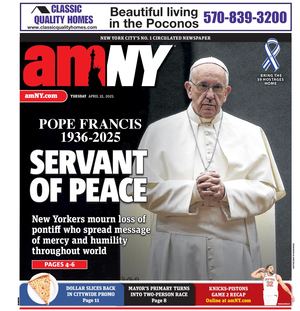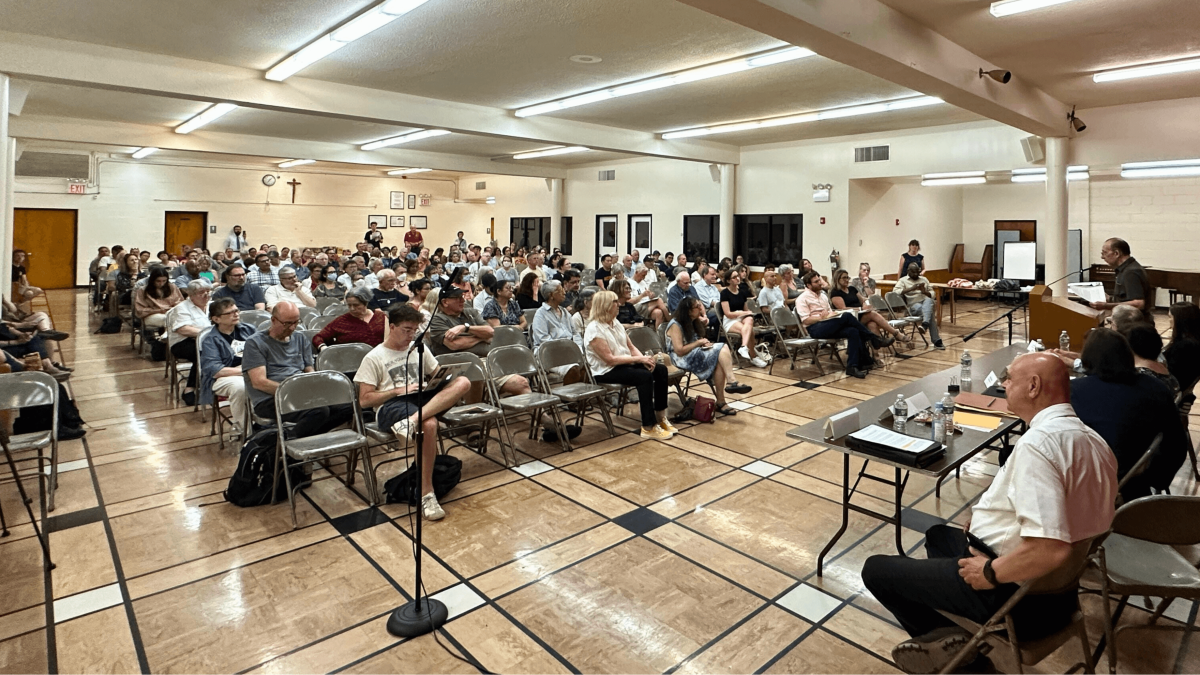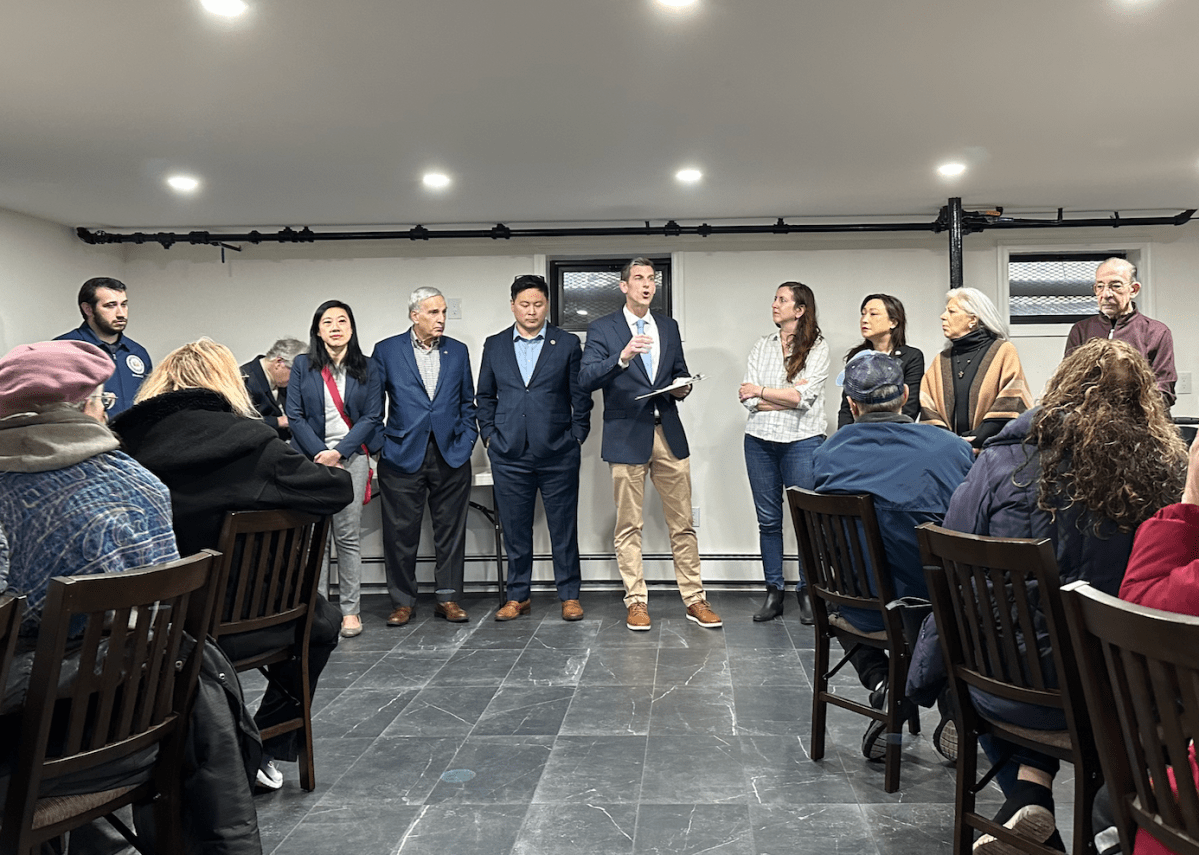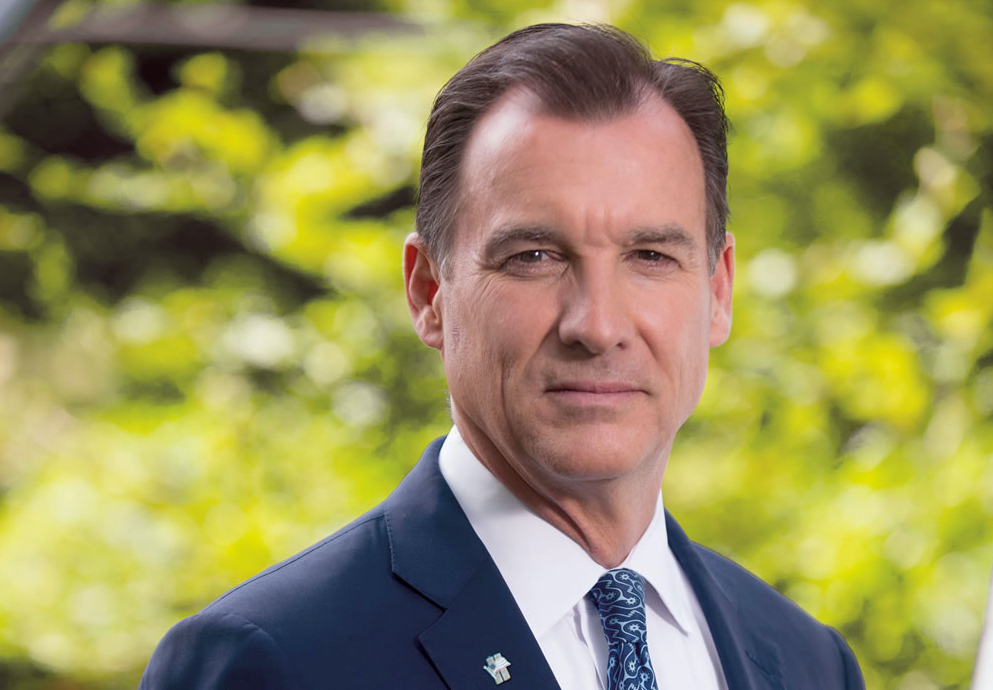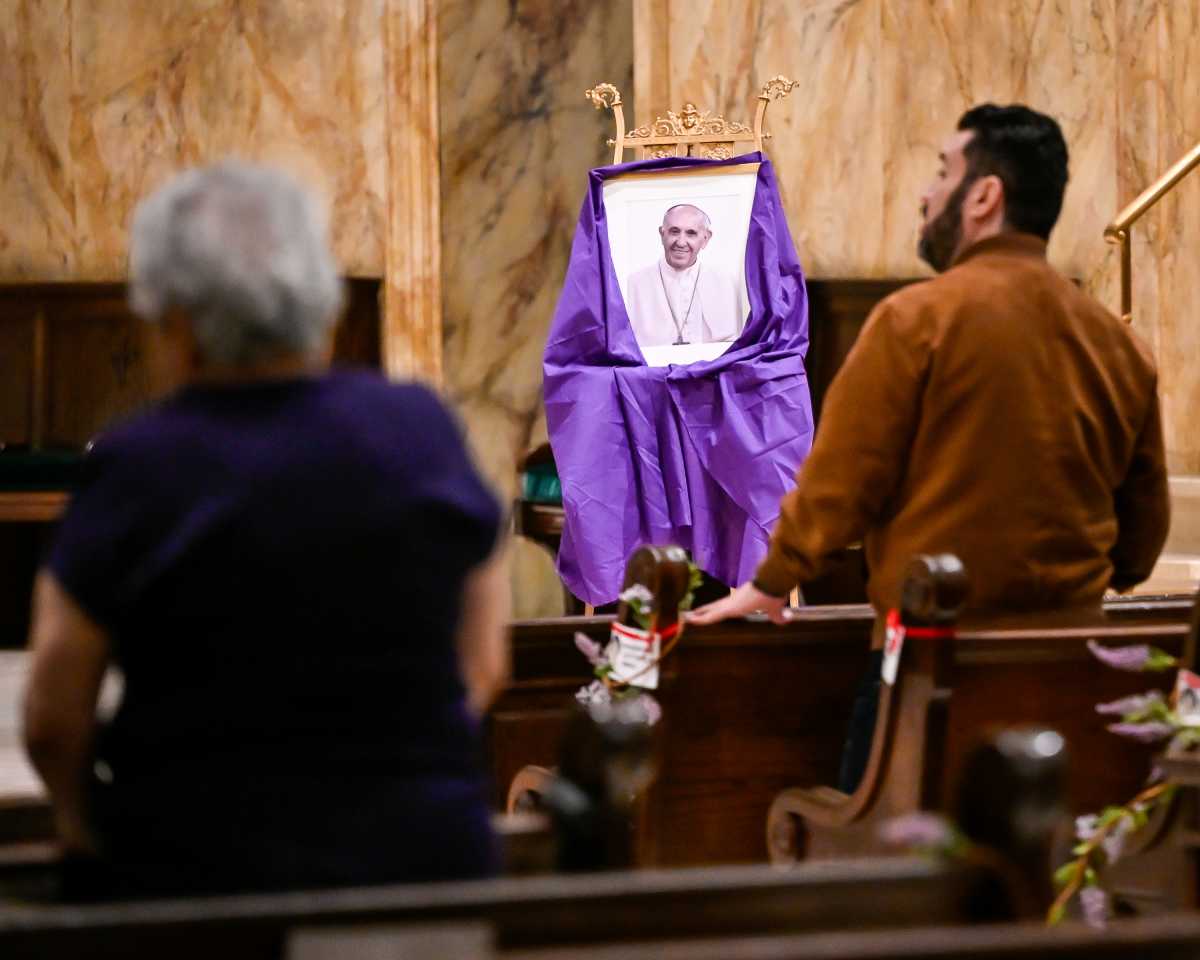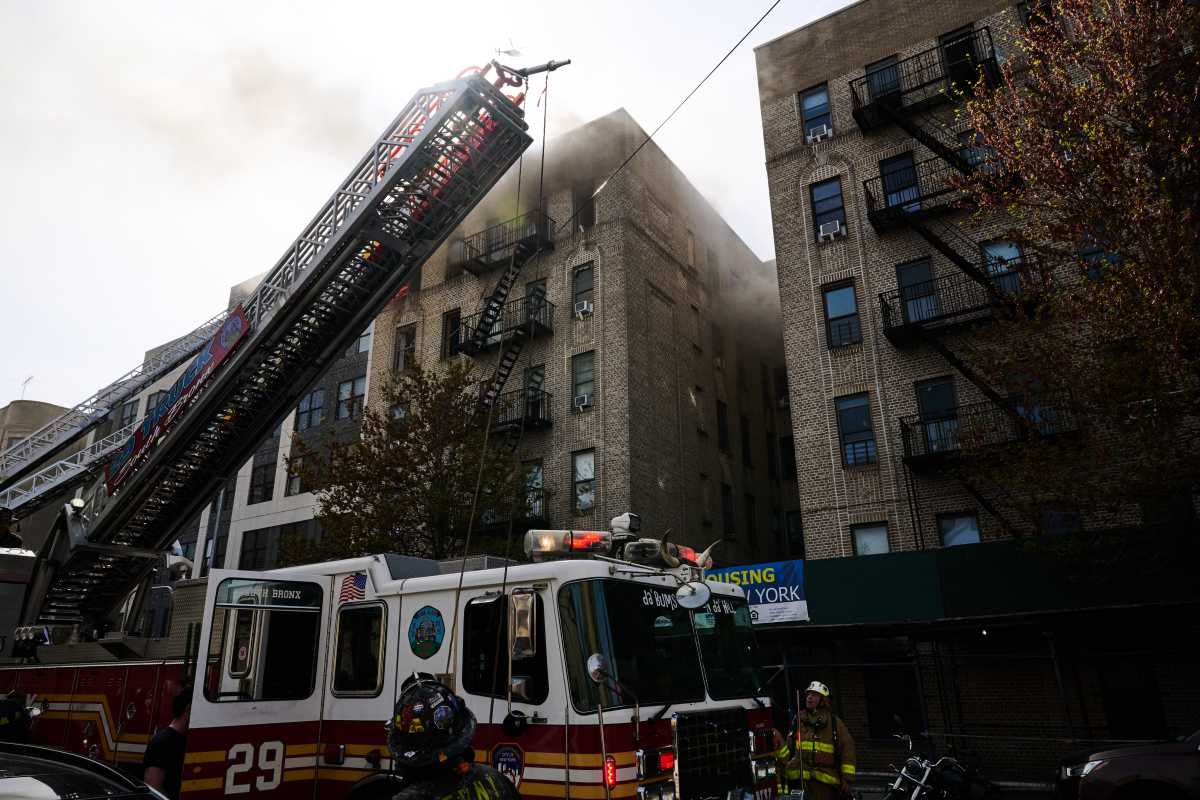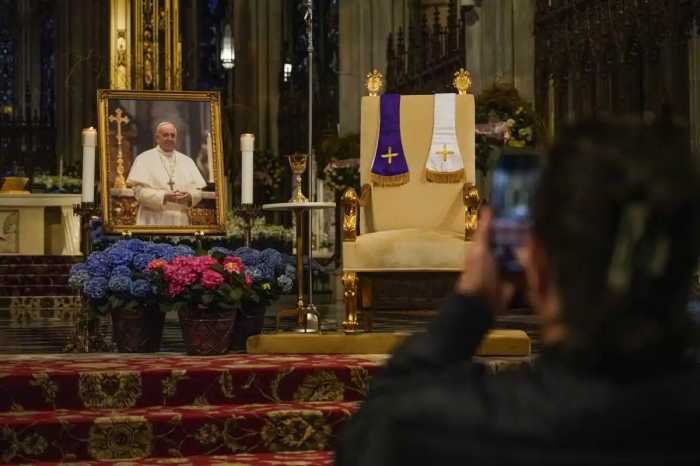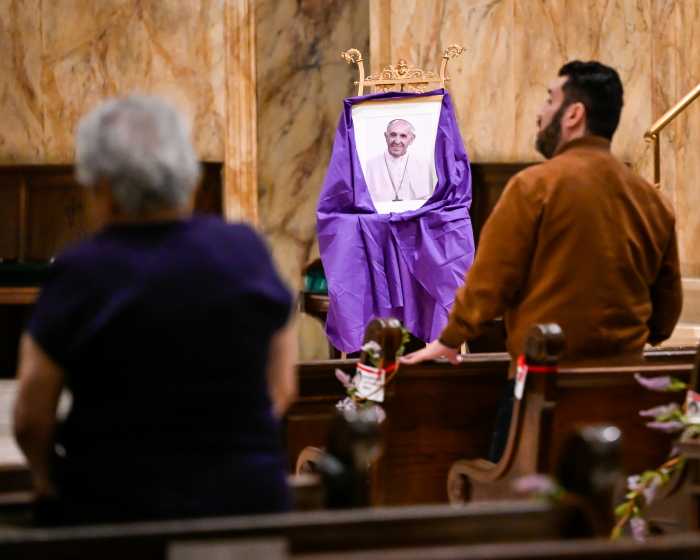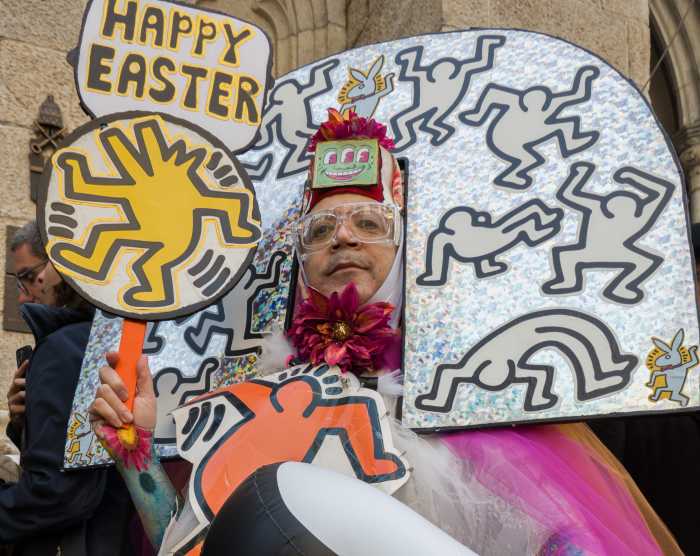More than 150 concerned western Queens residents attended a town hall event in Sunnyside on Wednesday, July 26, to learn about a new climate law that is likely to impose hefty costs on the owners of older co-op and condo buildings — and how to rally against its implementation.
The townhall was one of many to have taken place in Queens in recent months, with others held in Bayside, Flushing, Forest Hills and Douglaston.
The attendees of the Sunnyside event, which took place at Queen of Angels Parish Center, located at 43-18 Skillman Ave., were briefed on what’s known as Local Law 97, a bill passed by the City Council in 2019 that requires building owners with properties greater than 25,000 square feet to cut their carbon emissions to a pre-determined amount or face penalties starting in 2024. The law, which is less onerous when it comes to rent-regulated apartments and doesn’t apply to houses, provides no breaks for condos and co-ops.
The purpose of Local Law 97 is to reduce building emissions by 40% by 2030 — compared to 2005 levels — and 80% by 2050. Nearly 70% of the city’s greenhouse gas emissions come from buildings and regulators want to reduce them.
While most modern buildings will meet the 2024 requirements, many older condo and co-op buildings will not and are therefore likely to face fines. The fines will also rise in 2030 and beyond as the emission standards get stricter.
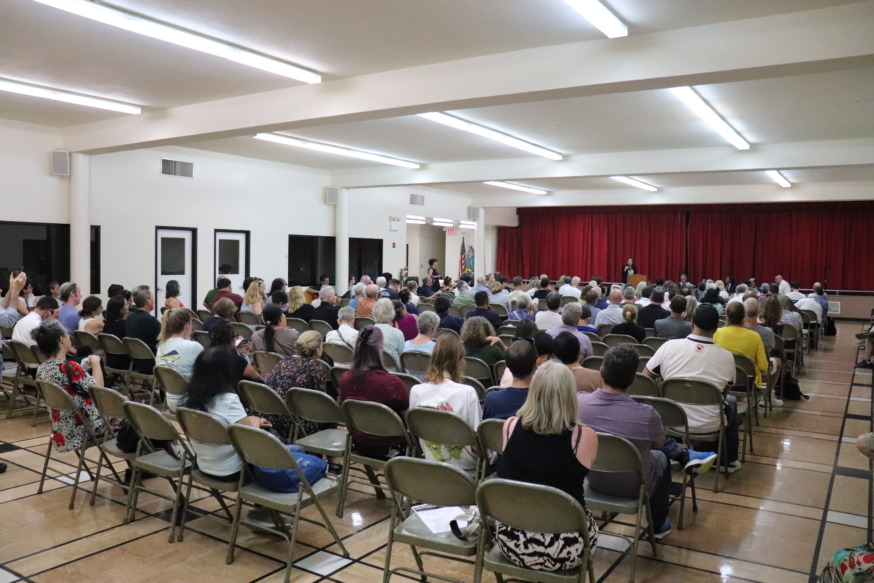
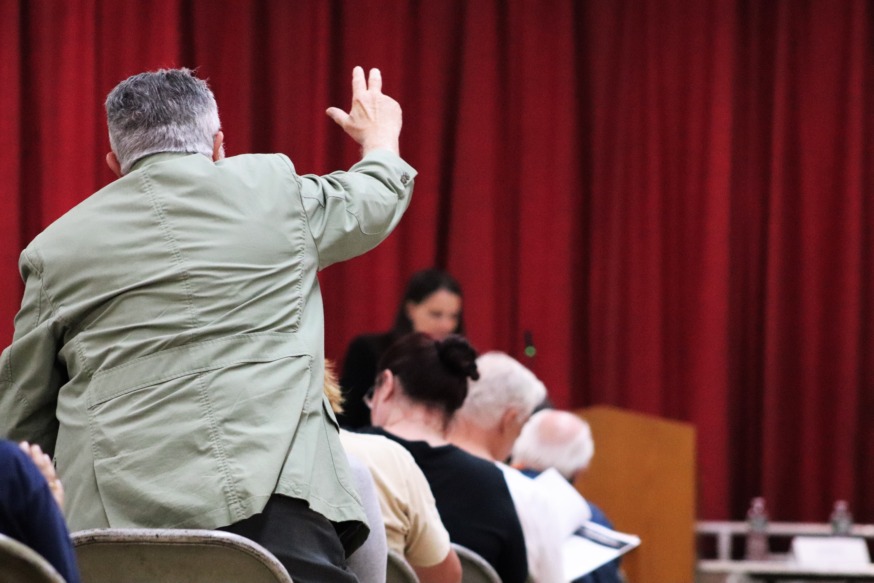
Some of the large co-op buildings in western Queens that will be affected by Local Law 97 include Sunnyside Towers, Queens View in Astoria and Celtic Park in Woodside. Many co-ops will need to switch out their working oil or gas burners and replace them with electric systems in order to comply with the law in coming years.
The attendees at the event also heard about legislation that seeks to postpone Local Law 97 from going into effect in 2024 and a bill aimed at exempting some coops and condos from the law. They were provided with information too about a lawsuit that seeks to strike down Local Law 97 altogether.
The July 26 event was hosted by the Western Queens Co-Op Coalition, a new organization tasked with representing co-ops in western Queens impacted by Local Law 97, and the Presidents Co-Op and Condo Council (PCCC), a group representing co-ops in eastern Queens affected by the law. Councilwoman Julie Won, who represents District 26, spoke to organizers after the event and to AM New York Metro/Queens Post.
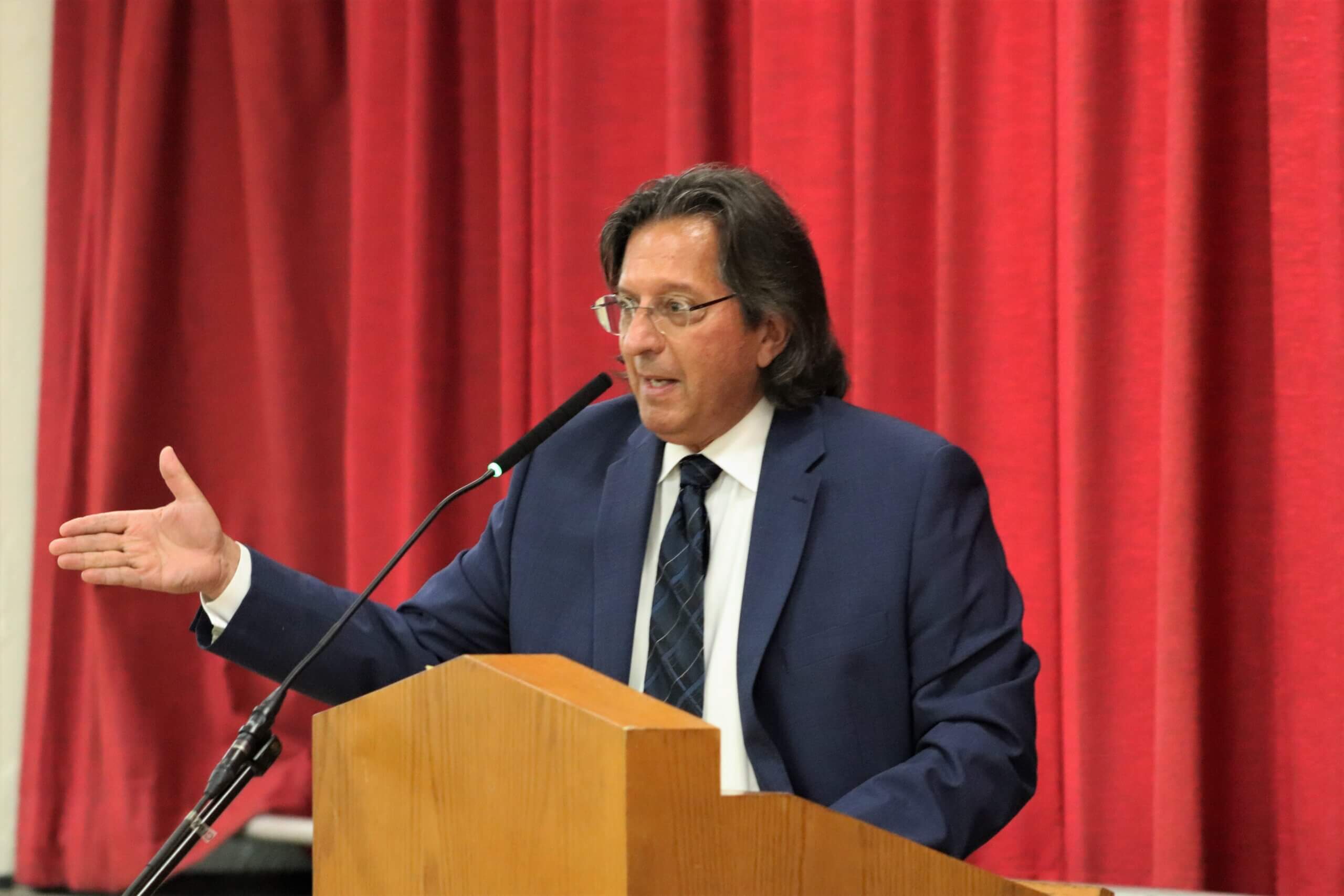
Geoffrey Mazel, who is a legal advisor to PCCC, said the practicality of the law has never been tested.
“Local Law 97 is landmark legislation — there is no other law like it in the country — so understand that this is not a tried-and-true methodology to reduce carbon emissions,” Mazel said. “It’s new, it’s never been enforced, and the current New York Council are all new to this also because the Council members that voted on [Local Law 97] in 2019 are all term-limited out.”
Mazel drew groans from the crowd when he said that around 45% of buildings in the city are exempt from having to meet the strict carbon limits. He said that many buildings under the law received “carve-outs,” meaning a type of exemption from having to comply with the greenhouse gas limits. For instance, rent-stabilized buildings receive carve-outs, as do hospitals, power plants, NYCHA buildings and single-family homes, Mazel said.
“I’ll give you the flip side,” Mazel said. “Who is the only group of New York City residents that is not carved out in the legislation? Look to your left, look to your right, it’s you. So congratulations you are the only group of residents in this city that has to foot this bill.”
Mazel said that the penalties in the bill are the largest set of penalties ever assessed in the city against residents and homeowners. He said that if none of the required buildings complied with the law, they would cumulatively be subject to $900 million in fines.
For instance, the Queens View co-op in Astoria — a 726-unit complex constructed in 1950 — is likely to face annual fines next year starting at nearly $50,000, according to Alicia Fernandez, treasurer of the Queens View board.
Fernandez said the fines will jump to around $500,000 per year from 2030 and then get successively higher.
She said the co-op will have to switch all of its gas boilers to electric heaters, and its gas cookers to electric in order to comply with LL97. She told amNewYork Metro that the EN Power Group, an engineering firm, is currently conducting a feasibility study to determine the overall costs of the potential upgrades, but a preliminary estimate puts the figure at $20 million.
That price tag would likely balloon to $40 million after additional costs such as removing lead and asbestos during installation are factored in, she said.
Fernandez said that the co-op already took out a $22 million loan last year for upgrades such as the installation of new roofs, replacing electrical panels, as well as submetering in order to reduce electricity consumption.
However, the upgrades will still fail to meet the 2024 requirements of Local Law 97 and the complex will not qualify for an additional loan — given its current loan — to undertake the electrification projects in order to comply.
“That would mean that if we proceeded to do the work to electrify, we would have to raise the money ourselves by levying a capital assessment which would average $55,096 per each of our 726 apartments,” Fernandez said, drawing more groans from the crowd.
“This money would have to be raised within the next two to three years to commence the work in time to … avoid the higher penalties as the limits get stricter,” Fernandez said. “This would not be feasible for the majority of our shareholders, they would default on their mortgage loans, our seniors would deplete their savings, this is something we are not going to be able to do.”
Jane Menton, who co-founded the Western Queens Co-Op Coalition and is on the board at Sunnyside Towers, a 158-unit co-op located on 39th Avenue, said her building will not be affected until 2030, when the emission limits get stricter. However, in order to be in compliance by 2030, the co-op would need to start electrifying in 18 months.
Menton said it did not make sense for co-ops to switch to electricity if the city’s energy grid is still mostly powered by fossil fuels. Around 80-85% of the city’s electricity is currently generated by non-renewables.
“Electrification is not green if our grid still runs on fossil fuels which it currently does today,” Menton said, her comments drew cheers and clapping.
She also questioned whether the city’s grid could withstand the increased demand that would result in co-ops switching to electricity. Critics of Local Law 97 say that the city did not sufficiently establish that the grid could handle a major surge in electricity before its passage.
“Politicians need to prove that they can build and scale a grid that is renewable, emission-free and reliable,” Menton said.
“[Officials need to make clear that the city] can provide the electricity to our buildings before asking co-ops to pay millions of dollars to do retrofits that may not work, we might do them and find out that we do not have the electricity or the power to run our buildings.”
The speakers called on the city council to pass a law called Intro 913 that would postpone Local Law 97 from coming into force for seven years. The bill was introduced in February by Council Member Vickie Paladino, a Republican who represents northeast Queens and it currently has nine sponsors — well short of the 26 Council members needed to pass it. The chances of the bill passing are small since the progressive-leaning Council is unlikely to consider changing Local Law 97.
Councilwoman Won, who represents District 26 covering Sunnyside, Woodside, Long Island City and parts of Astoria, told amNewYork Metro that she will not support Intro 913.
Won said Intro 913 amounts to “kicking the can down the road,” and it would only pass the problem onto future council members.
Instead, Won said she is considering introducing legislation aimed at reducing the burden for low-income unit owners.
“I wish there was a carve-out [for co-op and condos] built into the original law,” Won said. “We’re going to be introducing legislation that focuses on phase-ins for the fines and fees that aren’t so punitive — because it should be based on their income, Won said.
Meanwhile, Warren Schreiber, board president of a 200-unit co-op known as Bay Terrace in Queens, spoke about a lawsuit he is involved in that is challenging the legality of Local Law 97.
Schreiber, whose Bay Terrace co-op faces a $4 million cost to be in full compliance, says that the lawsuit argues that Local Law 97 is preempted by the state’s Climate Leadership and Community Protection Act (“CLCPA”), meaning Local Law 97 cannot supersede CLCPA.
Schreiber also said the lawsuit argues that Local Law is vague and ambiguous because the rules for compliance are not clearly set out and that Local Law 97 levies an unauthorized tax on emissions since the penalties go into a general fund and don’t go towards improving the climate.
Bob Friedrich, the president of the board of directors at Glen Oaks Village in eastern Queens, is also part of the lawsuit and spoke at Wednesday’s event. Friedrich said it would cost $50 million to convert the 2,904-unit development that he oversees to be fully electric.
Friedrich said the development, if it were to make no changes, would face fines starting at $394,000 each year—the equivalent of about $140 per unit—starting in 2024. The fines would jump to $1,500,000 per year in 2030 as the emissions standards get tougher and continue to increase. He said by 2050, as the fines get steeper, the penalties would total $38 million.
“The New York City, Green New Deal, was the result of a rigid and unbending political ideology that exists today in the City Council that keeps board presidents like me up at night searching for a way to make elected officials understand the peril they have all put us in, ” Friedrich said.
A questions and answers session followed the speakers’ session.
This story is part of amNewYork Metro’s Local Law 97 Climate Series
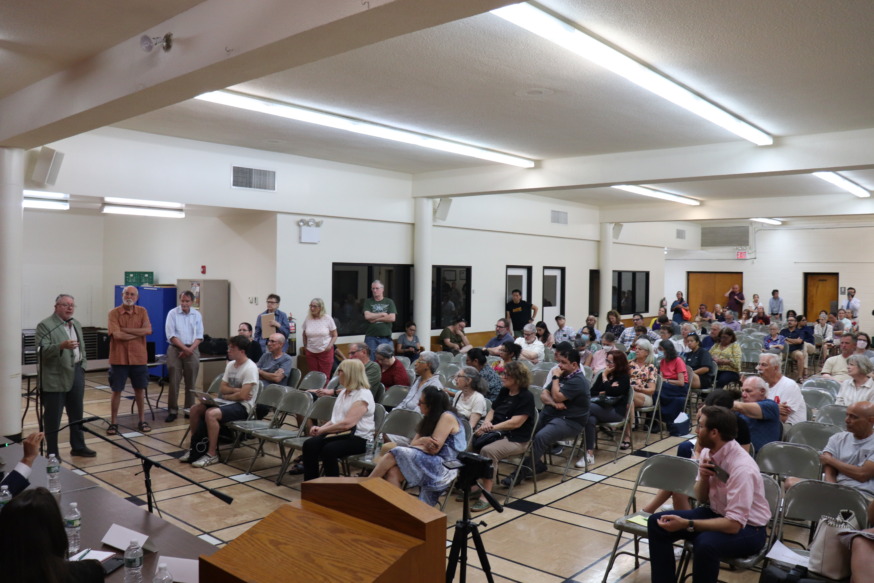
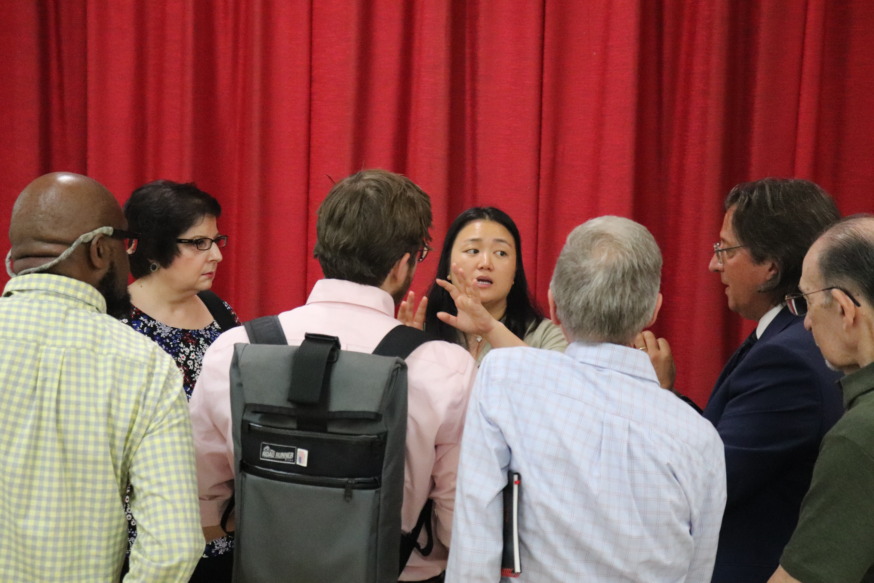
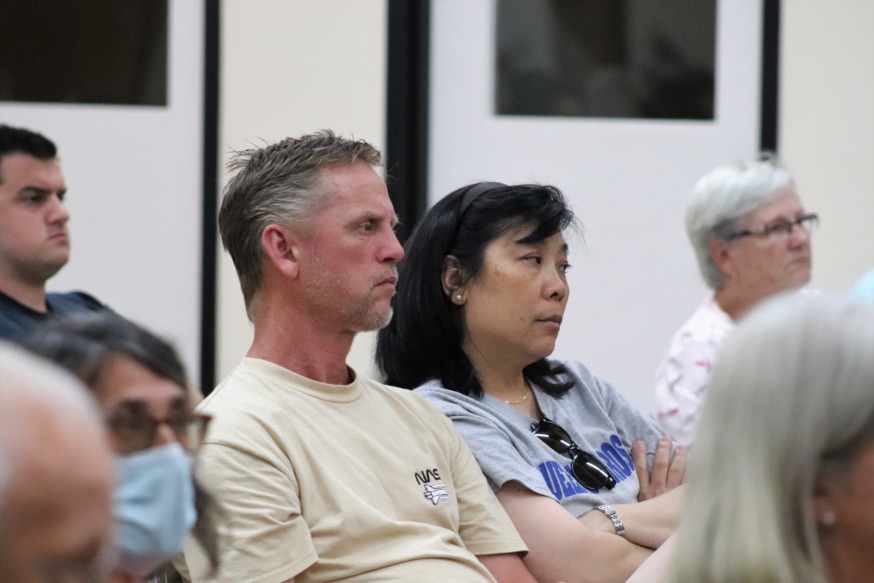
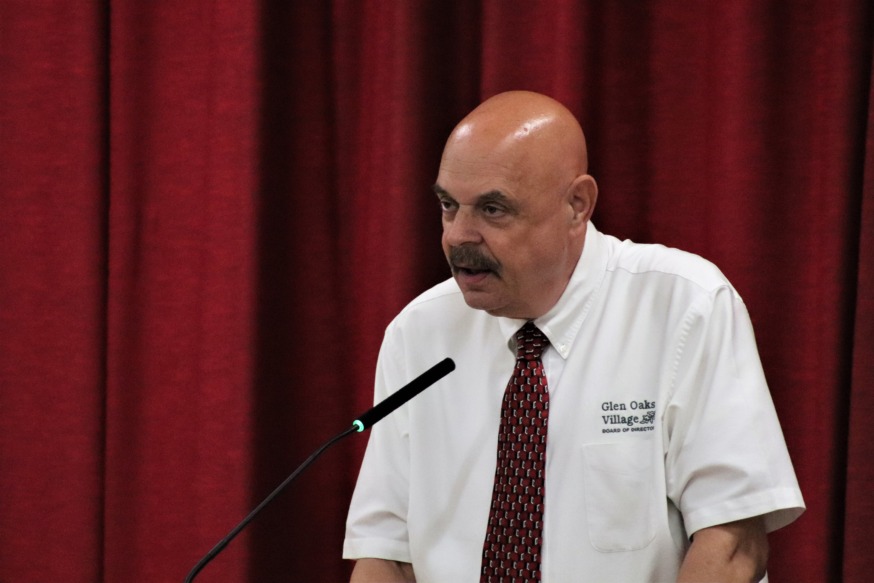
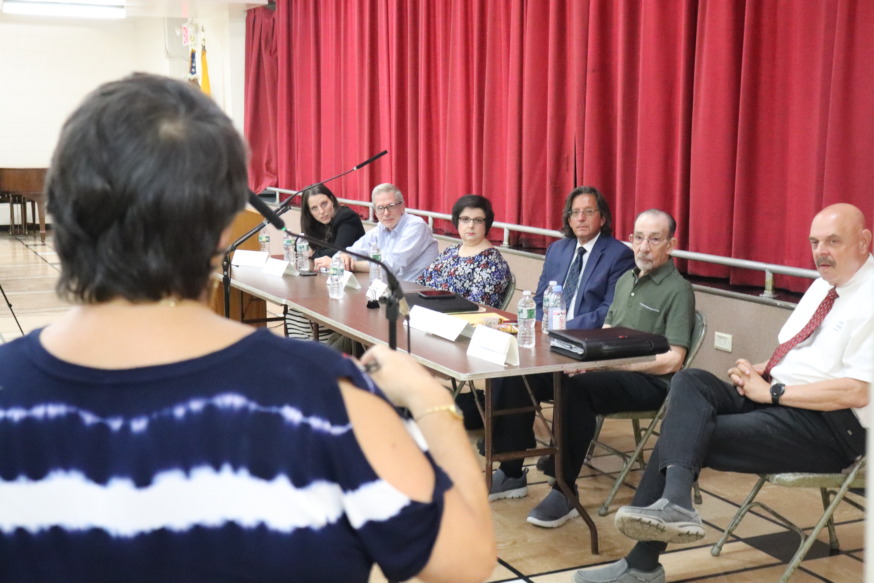

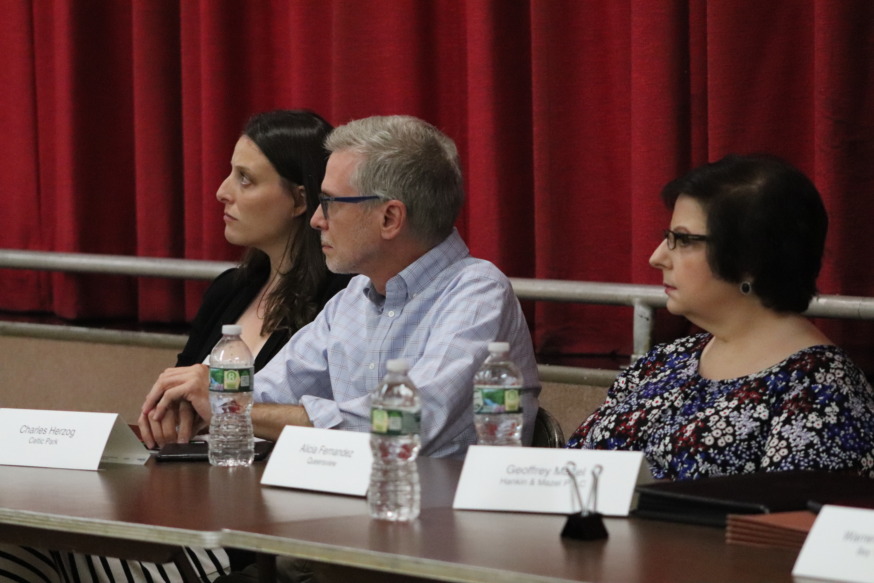
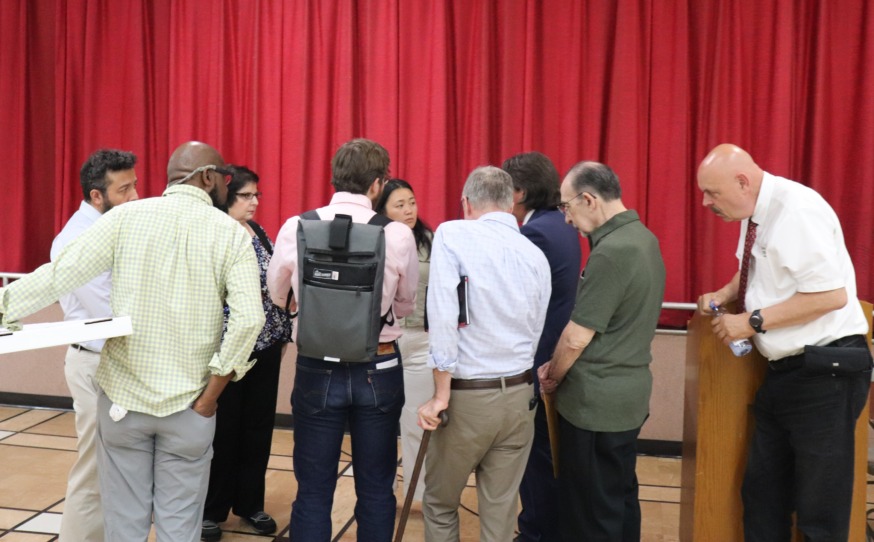
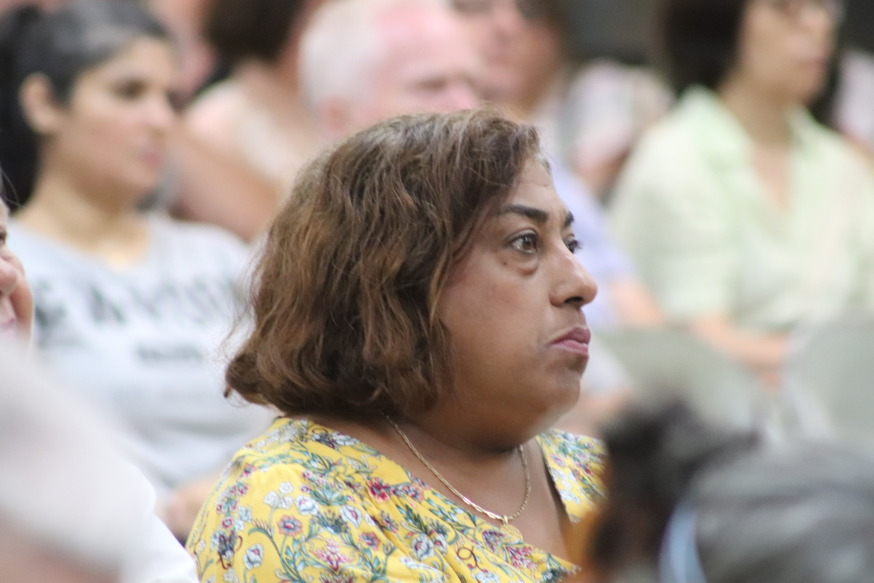
Read more: 52 New Marijuana Retailer Licenses in NYC
